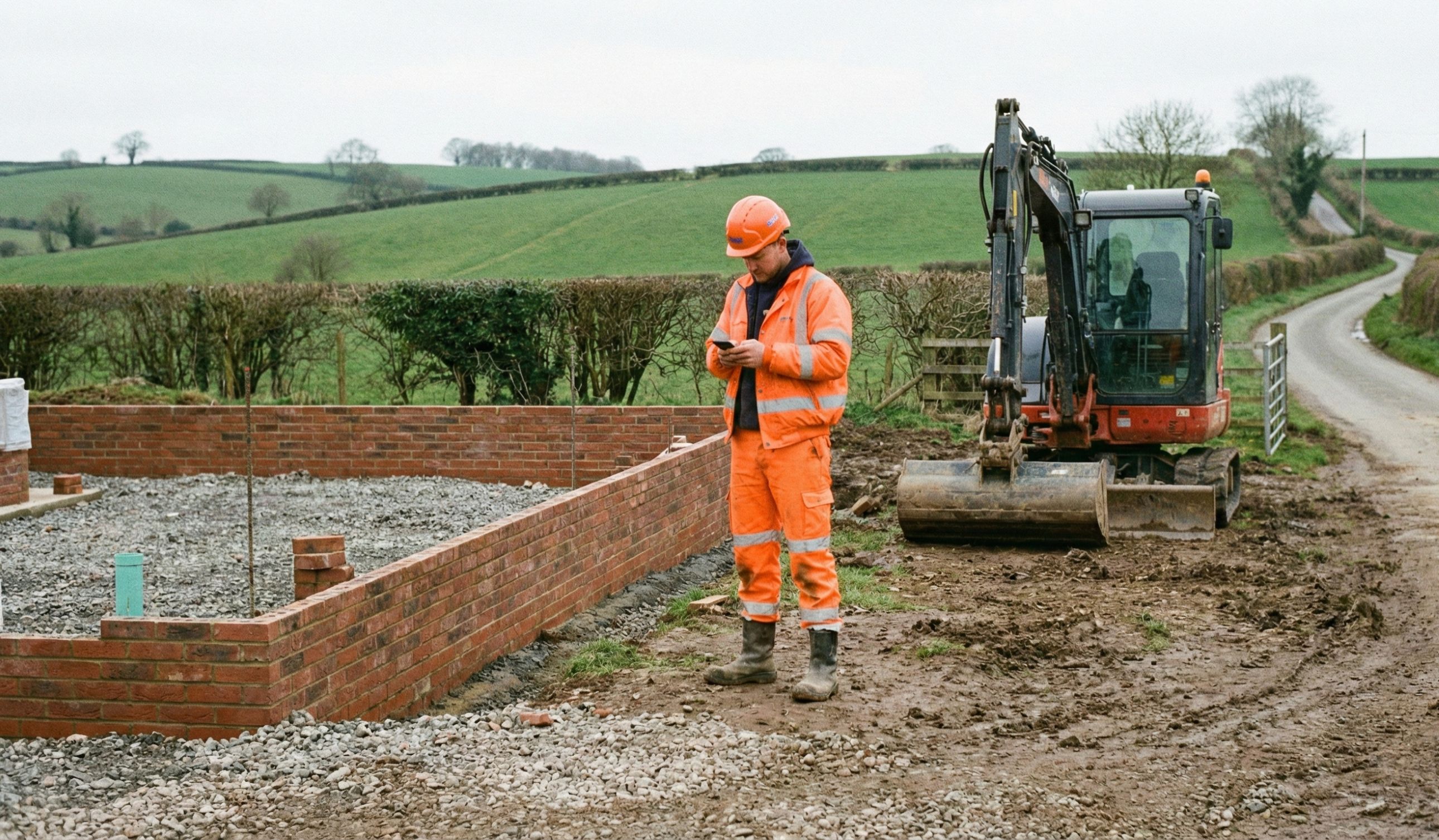While some digital technologies have been adopted quickly worldwide, some have faced resistance. In particular, digital inspection technology has faced slow uptake across various industries.
The high resistance toward investing in digital inspection systems is partly because many organisations believe they're getting by just fine with paper-based inspections.
Despite acknowledging the disadvantages of pen-and-paper inspection forms, many tolerate these disadvantages because they believe them to be minor.
Therefore, they don't think it's worth investing in digital inspection systems to replace their current legacy system.

In this article, we're challenging the notion that digital inspection systems are not worth the investment by highlighting one aspect that should never be taken lightly — data security.
Read on to discover how digital inspections are much safer than paper-based inspections and why this reason alone has enough weight to justify digitalising your inspection processes.
#1 It takes more skill to break into a digital file
With digital files, you have the security of limiting authorisation access of files to relevant parties. Passwords add another layer of protection to your files.
While it is possible to hack into a system or guess passwords, it takes significantly more skill to break into a digital file. In other words, it’s harder for the layman to access a digital file they’re not authorised to see.
When your inspection data is in paper format, it’s easier for others to access or make copies of it without proper authorisation.
Can this be a big issue? Yes, because improper authorisation can lead to a host of more significant problems, such as:
- Safety, maintenance, vehicle, or quality inspection sheets could reveal information about the proprietary technology you use in your business. If sensitive data around your proprietary technology is leaked, it could compromise your business because your competition could take advantage of the knowledge.
- Property inspection sheets could reveal private customer data, such as names and addresses. When you don't protect personal data, it can be used to harm or stalk a person physically. Some of the data protection laws were explicitly implemented for customer safety.
- Customer data breaches could cost a company a lot in legal fines and consumer trust. This Global Data Privacy Consumer Study revealed that:
- 94% of UK consumers are concerned about how companies are protecting their data
- Over 56% would stop buying from or engaging a business that fails to protect its data.
Thus, property managers and other industries conducting inspections involving customer data need to take data security very seriously.
#2 It’s easier to lose a physical piece of paper
Once you save a digital file online, you can trust it's reasonably secure. It's unlikely for the file to be deleted or lost. If by any chance a digital file was accidentally deleted, backups or digital historical archives can help you recover the file.
You can't say that about physical paper with the same assurance. Disasters like a flood or accidents like a fire could wipe out all your data in one fell swoop — and there's no recovery from that.
Losing part or all of your historical records of inspections can impact your business in several ways, including:
- Impairing your organisation’s ability to analyse historical trends that can improve workplace safety, productivity, customer satisfaction, product quality, and so on.
- Putting you at risk of non-compliance with local laws. For example, the HSE requires businesses to keep records of all RIDDOR reports in the UK.
- Not being able to claim warranties or insurance on faulty equipment because you’ve lost the necessary maintenance records needed for a successful claim.
#3 There are higher risks of carelessness and mismanagement
You might think that the chances of floods or fires are relatively low; therefore, you feel you might as well continue with your company's current paper-based inspection processes.
But have you considered the more common occurrences of carelessness and mismanagement of paperwork?
It's easy for an employee to lose a physical inspection sheet before it gets appropriately filed, especially if they're often on the move and dealing with lots of paperwork daily.
Conversely, once a digital inspection is completed and submitted, it is instantly saved in the database.
Even when inspection sheets have been filed, they can be mismanaged and "lost" in the system. For example, different employees may file things according to other filing systems, making it harder for someone to locate a specific inspection report they need.
Searching for digital files is usually not as problematic. Many digital inspection systems filter views according to variables such as location, employee, and date. They also have search functions based on keywords for a more specific search.
With filtering and search functions, digital inspections make locating any inspection report easier and faster, boosting efficiency and productivity.
#4 It’s easier to tamper with physical inspection reports (and get away with it)
With the right digital inspection system, you can have an instant audit trail or record of who added, edited, or deleted any data. You don't have the same luxury with paper-based records.
Just as it's easier for anyone to access physical records, it's also easier to edit paper-based inspection records without anyone knowing who did it or when someone made the change.
Conversely, making a digital edit without leaving a trace takes more skill (and time).
Being able to tamper with physical inspection records easily can open the door to numerous issues, including:
- Changing data on a safety inspection report to avoid the responsibility of executing the corrective action or a non-compliance fine — effectively risking other people's safety because the safety hazard is not addressed.
- Careless, vague, or inaccurate amendments of inspection sheets without knowing who did the updates. If managers cannot trace who did the updates, it becomes difficult for them to ask clarifying questions. Depending on the type of inspection, this can impact various areas of business, from vehicle safety to product quality.
#5 Limited liability protection
The disadvantages of paper-based inspections we've covered up to this point all lead toward limited liability protection.
Losing your paper inspections, carelessness or mismanagement of paperwork, or untraceable report tampering could land any organisation in legal hot waters.
On the other side of the coin, digital inspection systems help to eliminate legal woes.
If there's a lawsuit involving your inspection records as evidence, business owners have a stronger case because their digital inspections will have audit trails that showcase:
- Time-stamped proof of inspections
- Records of corrective actions taken
- Audit trail of changes to inspections, who did them, and when
Other solid reasons to move to digital inspection systems
Keeping your information safe isn’t the only benefit companies will enjoy when they opt to digitalise their inspection processes.
There are many other reasons why digital inspections are superior to their paperwork counterparts, ranging from boosting productivity to reducing errors.
To fully leverage the benefits of digital inspections, we highly advise organisations to invest in software developed explicitly for inspections.
Simply switching to any readily-available digital software such as spreadsheets isn't a good idea (and here’s why).
For more information on how our Workflows inspection can improve your inspection processes and keep your data safe, go here for more details or chat with our sales team.




